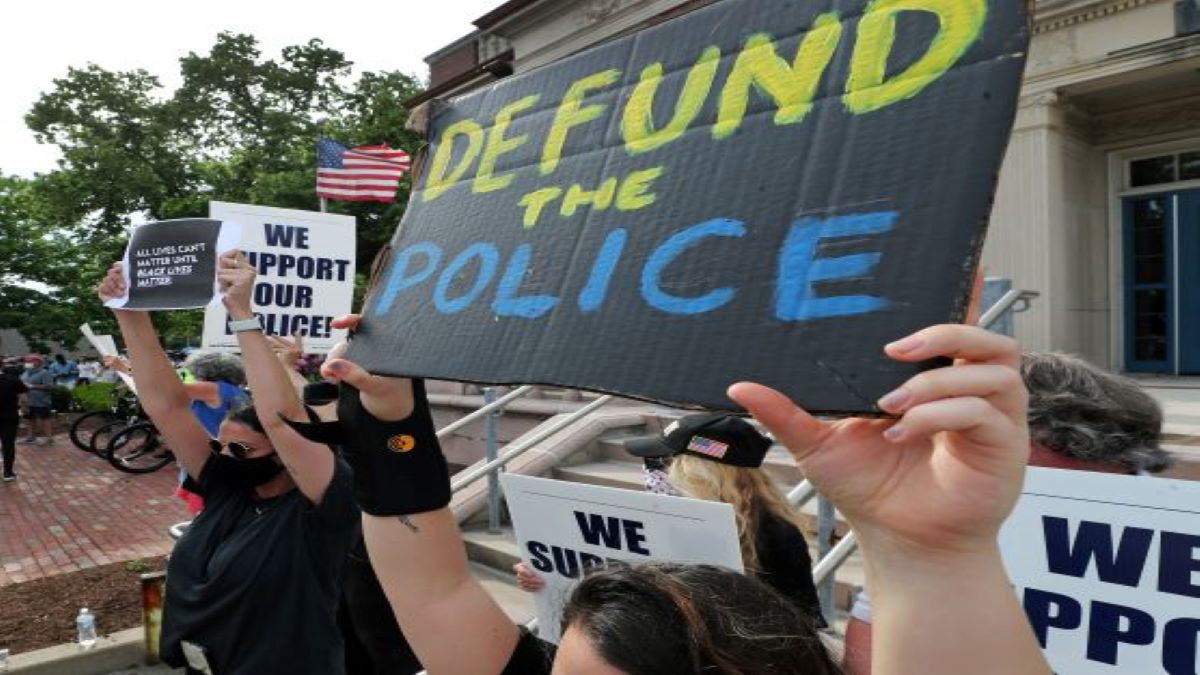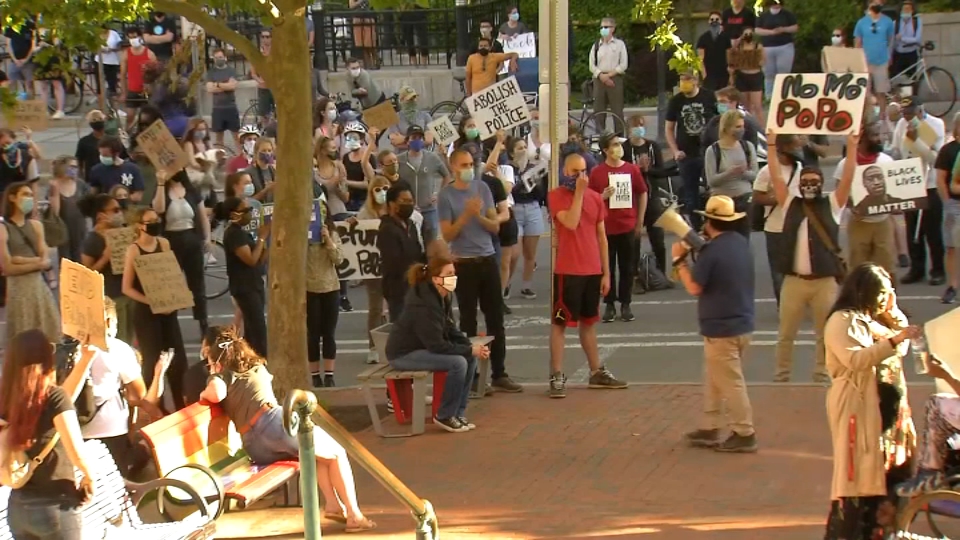Protesters marched to Boston City Hall Wednesday calling for city leadership to reduce its spending on police amid a nationwide push for sweeping structural reforms to the law enforcement system.
The Coalition of Black Youth planned the march to urge the City Council to redirect police funding to youth jobs programs, violence prevention and to hire additional mental health councilors in Boston Public Schools.
“We believe in bottom up systems,” said one of the march’s organizers Stephen Lafume. “The people closest to the pain are closest to the solutions.”
The demands of the group include reducing the police budget by at least 10%, or around $41 million, as well as removing police from the education system. In addition, the group would like to see a cap on overtime accrual and overtime pay for military exercises.
The march comes amid nationwide protests to defund police departments, a rallying cry for protesters who want to see funding for law enforcement be diverted to social programs to support communities impacted by systemic racism.
“We’ve got to be active and we’ve got to spread awareness,” said Matt Balinda, of Framingham. “I have the power to influence one person. That one person will lead to another person.”
Elsewhere Wednesday, the Essex County Community Organization is holding a caravan protest for racial justice starting in Salem and ending in Lynn.
A similar caravan protest is planned in Needham, where demonstrators will be asked to stand beside their cars for 8 minutes and 46 seconds in silence to honor the memory of George Floyd.
That protest began at 6 p.m. and moved along Webster Street, where signs were posted naming victims of police brutality and racist violence.
“I think all around the world things are changing for the liberation of Black people and other folks of color,” said Roxbury resident Carl Williams. “It’s almost uncountable the things that have happened in the last one week.”
Boston Mayor Marty Walsh said this week he is considering redistributing funds from police to community-led initiatives, according to his office.
“I've spent the last week talking with my Cabinet and employees at City Hall about how we make sure we are not just reacting to the events in Minneapolis, but how do we make sure that we are responding in a way that’s meaningful and brings about systemic change," Walsh said in a statement.
"I'm continuing to have conversations with councilors and my staff about what our budget will look like this year because now is a time to roll up our sleeves and get real work done, not separately as the Mayor and City Council, but together as one government. I am committed to making real change and making Boston a national leader in building a more just future.”
Compared to other big cities in America, Boston has one of the lowest police budgets, with 11% of the city’s budget, or $414 million, going towards police, according to Walsh's office.



